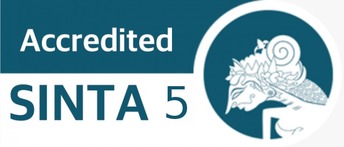PENERAPAN PEMBELAJARAN BERBASIS MASALAH UNTUK MENINGKATKAN PEMAHAMAN KONSEP DAN PENGETAHUAN PROSEDURAL MATEMATIKA SISWA SMP
DOI:
https://doi.org/10.24114/paradikma.v5i2.1089Abstract
This study was aimed to determine (1) the differences between students' understanding of mathematical concepts to acquire problem-based learning with students receiving regular learning. (2) to knowing the differences in procedural knowledge of mathematics among students who received problem-based learning with students that receive the regular learning. (3) Describe the range of students' answers in solving the problem for both groups of each point about the understanding of concepts and procedural knowledge. (4) to knowing the thoroughness learning of students who received problem-based learning. (5) to knowing the students responses to problem-based learning. This study is a quasi-experimental research. The population was students in the junior class VIII Padangsidimpuan accredited in 2010. The instrument used test understanding of concepts, procedural knowledge tests and questionnaires on student responses. The instrument is deemed to have qualified to validite the contents, as well as understanding of the concept of test coefficient reliability of 0.94 and 0.90 for procedural knowledge test. Data analysis was performed by descriptive analysis to describe the exhaustiveness of student learning, the variety of answers to students and student responses to learning activities analyse by t test. The result showed that: (1) there is a difference of the understanding of the concept among students who received problem-based learning compared with normal learning, where the problem-based learning can further enhance students' understanding of concepts than with ordinary learning. (2) there is a difference between the procedural knowledge among students who received problem-based learning compared with normal learning, where the problem-based learning can further improve procedural knowledge of mathematics students with the usual learning. (3) Variety of students' answers in a problem-based learning is more varied when compared with regular students in learning the answers. (4) understanding the concepts of students with problem-based learning with the complete percentage is 77.14% and in procedural knowledge with the students problem-based learning with the complete percentage is 88.57%. (5) there is a positive response to students' problem-based learning activities.Downloads
Published
2012-12-30
Issue
Section
Articles






